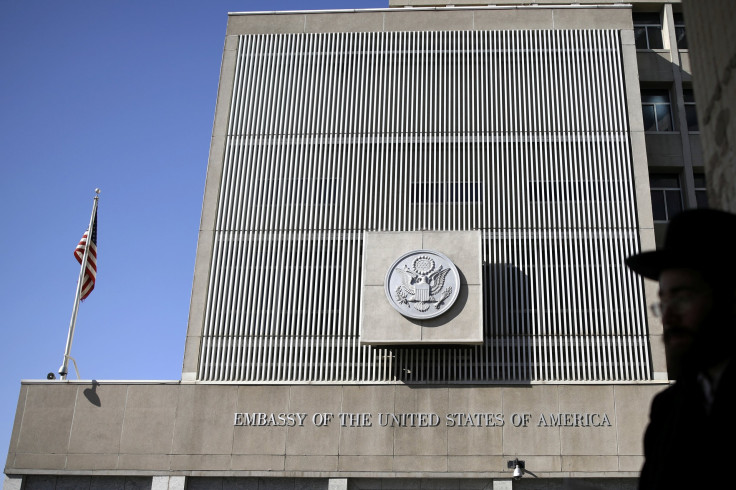Trump Administration Will Not Move Embassy In Israel To Jerusalem: Report

UPDATE: 5:15 a.m. EDT — Israeli news outlets Arutz Sheva and the Jerusalem Post reported Wednesday that the prime minister’s office had not received any notice from the United States about a decision to not move its embassy to Jerusalem.
The reports quoted a statement from the prime minister’s office which said: “Israel's stance is that all the embassies belong in Israel's capital of Jerusalem, and the U.S. Embassy should be one of the first to move.”
Earlier on Wednesday, Israeli news website NRG reported, citing unnamed sources, that the U.S. government had decided to not move its embassy in Israel from Tel Aviv to Jerusalem, and that the Israeli government had been informed of the decision.
Original story:
The United States will not move its embassy in Israel from Tel Aviv to Jerusalem, the Israeli right-wing news website NRG reported Wednesday, citing unnamed sources.
According to the website, President Donald Trump’s administration has already informed Israeli President Benjamin Netanyahu that the U.S. president would veto the enactment of the 1995 Jerusalem Embassy Act, which recognizes an “undivided” Jerusalem as the capital of Israel and calls for establishment of the U.S. embassy in the city “no later than May 31, 1999.”
Read: Trump Envoy Optimistic Regarding Peace Prospects
If confirmed, Trump’s decision to not move the U.S. embassy to Jerusalem would go against the promises the then-Republican candidate made during his election campaign.
In a statement released after Trump held a private meeting with Netanyahu in September, the Trump campaign promised that, if elected, his administration “will finally accept the long-standing Congressional mandate to recognize Jerusalem as the undivided capital of the state of Israel.”
The statement — and several others — has since been removed from the Trump campaign website.
Although the president has refrained from talking about the contentious issue since taking office Jan. 20, officials in his administration haven’t. In March, Vice President Mike Pence said — in a speech to the pro-Israel lobbying group American-Israel Public Affairs Committee — that “after decades of simply talking about it, the president of the United States is giving serious consideration to moving the American embassy from Tel Aviv to Jerusalem.”
The city of Jerusalem is currently divided into two parts — West and East. Israel annexed West Jerusalem in 1948 (even though United Nations designated it as a "corpus separatum" and allocated it to an international body in 1947), and captured the eastern section from Jordan during the Six-Day War in 1967. Then, in 1980, the Israeli parliament declared that “Jerusalem, complete and united, is the capital of Israel.”

Since then, West Jerusalem has been the seat of the Israeli government, and its official position is that “throughout the millennia of its existence, Jerusalem has never been the capital of any other sovereign nation.”
“Jerusalem is the capital of Israel, and it is proper that not only should the American Embassy be here, but all embassies should come here,” Netanyahu said during a cabinet meeting in January. “And I believe that over time, most of them will indeed come here, to Jerusalem.”
However, the U.N. still maintains its original position on Jerusalem, and it has repeatedly called for the city to be the capital of both Israel and Palestine.
The U.S. currently has two consulate-general buildings in West Jerusalem, but its embassy in Israel — like all other countries’ — is located in Tel Aviv. This is because all U.S. presidents since Bill Clinton have vetoed the enactment of the Jerusalem Embassy Act, passed by Congress in 1995.
The debate over relocating the U.S. embassy has been vociferously opposed not only by the Palestinians, who consider East Jerusalem to be the capital of their future state, but also by their allies such as Turkish President Recep Tayyip Erdogan, who recently said that even “relocating a stone” in Jerusalem would have serious consequences.
“The debates over the possibility of U.S. moving its Israel embassy to Jerusalem are extremely wrong and should certainly drop from the agenda,” Erdogan said during a speech in Istanbul earlier this week.
© Copyright IBTimes 2024. All rights reserved.




















